January 5, 2019
SPOILER ALERT: This article contains key incidents of Bernard Krieger’s life and death that are not revealed in the podcast until the final chapters.
‘Bernard the German’ is the true story of an ox of a man, who died just as he lived -- very remarkably. It’s a tale that takes you around the world, from the war-torn rubble of post-war Germany, to the oceanic wilderness of Desolation Sound, B.C., to the tropical climes of the South Pacific. This is a story of a man who let nothing get in the way of living his dreams.
Imagine being born into a country that many around the world held primarily responsible for instigating the deadliest conflict in human history. That was the reality of life if you were born in Germany in the late 1940s. It was in this scorched aftermath of destruction, hunger and economic strife, that Bernhard Karl Maria Krieger came into the world on Sept. 4, 1949. He was the youngest of 14 brothers and sisters.
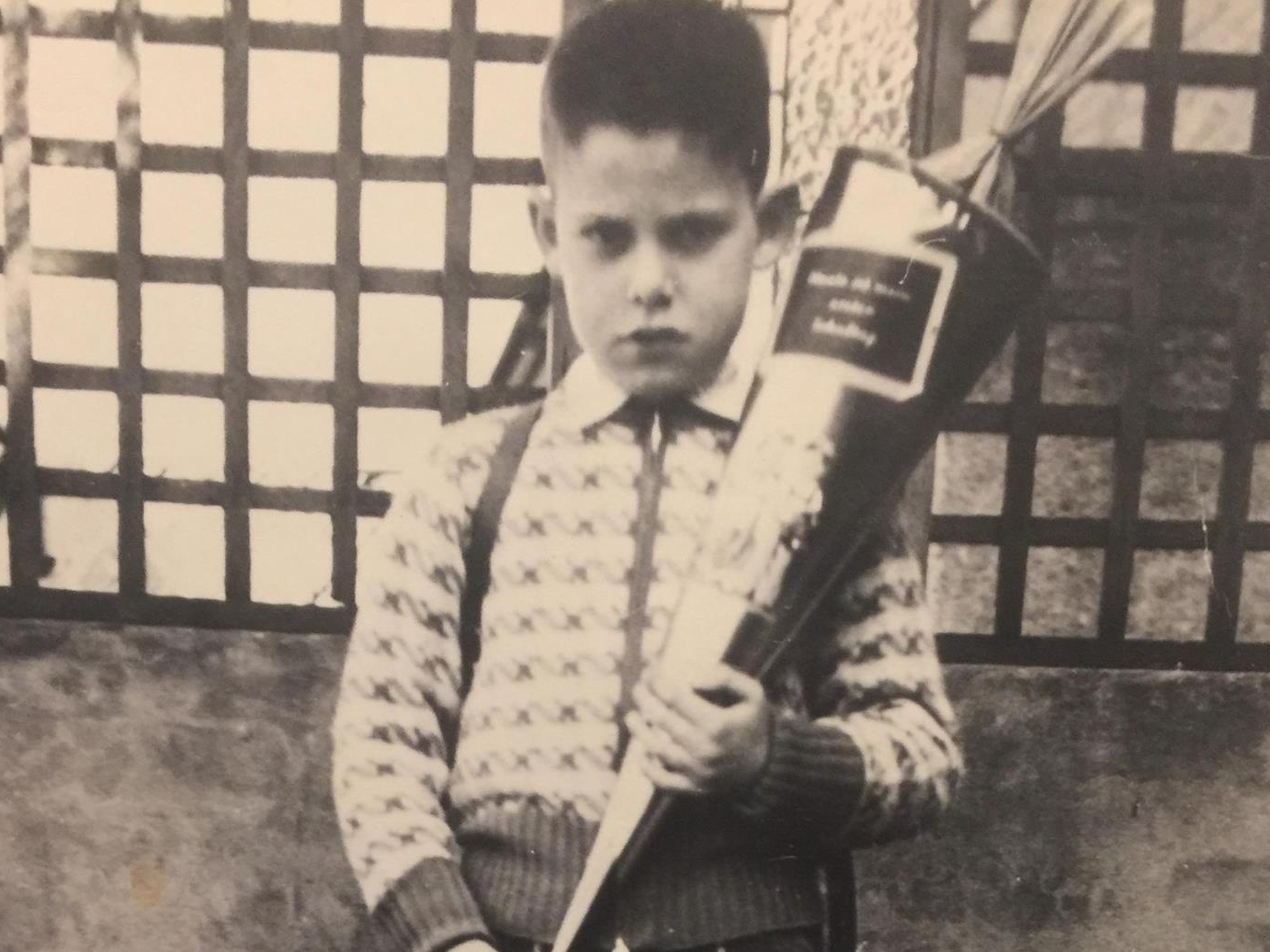
After the war -- which saw the family home in Trier destroyed by Allied bombs -- the Kriegers feared a Soviet invasion from the east, so they made the decision to move their huge family to the safety of Canada. Over the next 15 years, as Kriegers worked until retirement in Germany, they sent most of their children to Canada.
Teenage years
In 1965, a tall, thin, 16 year-old-Bernhard Krieger immigrated to Edmonton with his parents.
He was over six feet, had wavy, long black hair and dark, piercing eyes. He could barely speak a word of English. Even in the ‘60s, there remained a lingering anti-German sentiment in Alberta, and Bernhard was bullied for his heritage, his language, and his long hair, but was under strict orders from his parents to never fight back. He soon changed his name to the more English-sounding Bernard.
Krieger’s social fate changed dramatically when the towering teen was coaxed into joining his high school soccer team. He became a star player for the St. Joseph Saints, leading the team all the way to Edmonton’s 1967 high school championship. The Saints won 3-0 in front of a stadium full of fans. Krieger scored all three goals. His photo was splashed upon the front page of the Edmonton Journal.
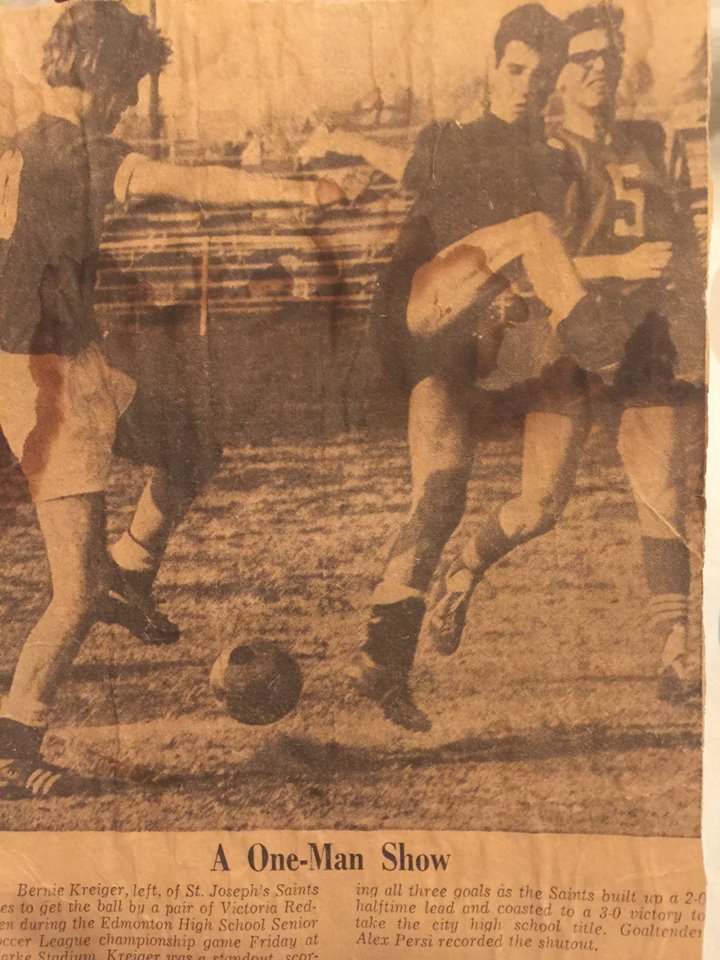
Freewheeling days
Many thought Krieger could have become a professional athlete, but he graduated from high school straight into the Summer of Love in 1967. Krieger and his long-haired buddies climbed into a Volkswagen van and headed for the West Coast. They eventually arrived into the hippie mecca of West 4th Avenue in Vancouver, one of the largest counterculture happenings in the world.
From there, Krieger travelled south to San Francisco, where he revelled in music, drugs, and revolution. The huge hippie with the thick German accent and even thicker moustache sampled just about every narcotic that was offered him. His freewheeling ways in the late 1960s would eventually come back to haunt Krieger.
“The music was awesome. You could see Jethro Tull and Led Zeppelin on the same bill at the Fillmore,” Krieger told me, referring to the city’s storied music venue.
Krieger also took part in anti-war rallies in Golden Gate Park and the U.C. Berkeley campus in nearby Berkeley, Calif.
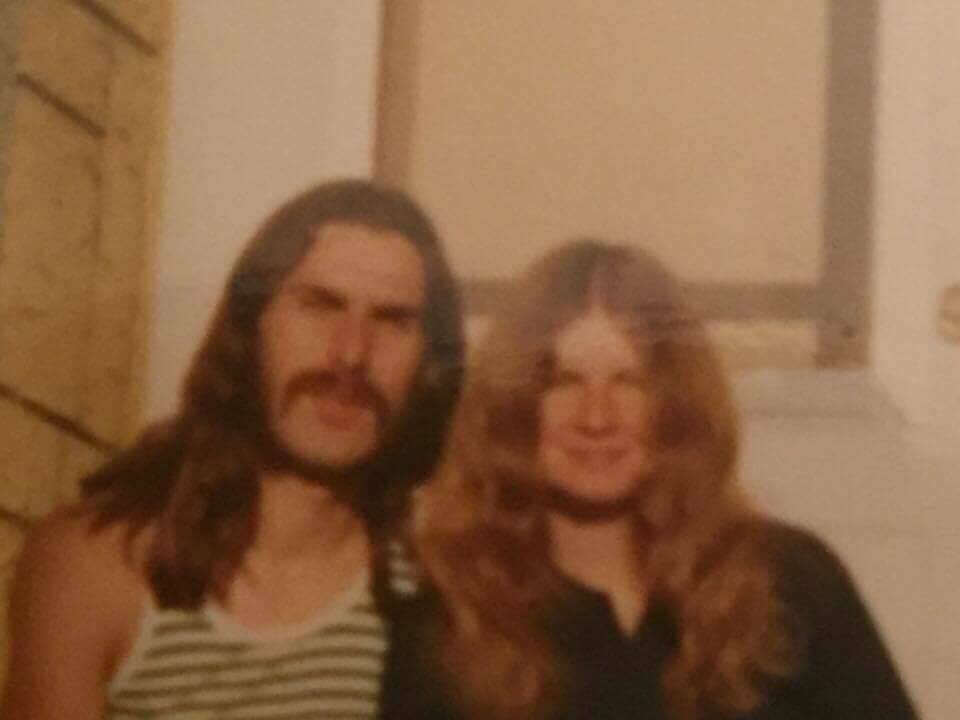
Through a haze of pot smoke and salt air, Krieger had fallen in love with the West Coast. He hatched two dreams for his future: The first was to one day build himself an oceanfront cabin in the wilderness, and the second was to some day sail around the world.
Cabin by the coast
In the early 1970s, Krieger returned to Vancouver, securing a job on the North Vancouver docks, which turned into a near-30-year career as an electrician and an inspector for the Saskatchewan Wheat Pool.
As he neared the end of his working days -- during which he married, had two daughters, moved to the suburbs, and divorced -- Krieger’s first dream eventually came true: he bought a jagged piece of coastline in the water-access-only wilderness of Desolation Sound, just beyond the northern edge of B.C.’s Sunshine Coast.
That’s where he and his second wife, through much trial and error, built their own eagle’s nest of a cabin by hand in the mid-1990s.
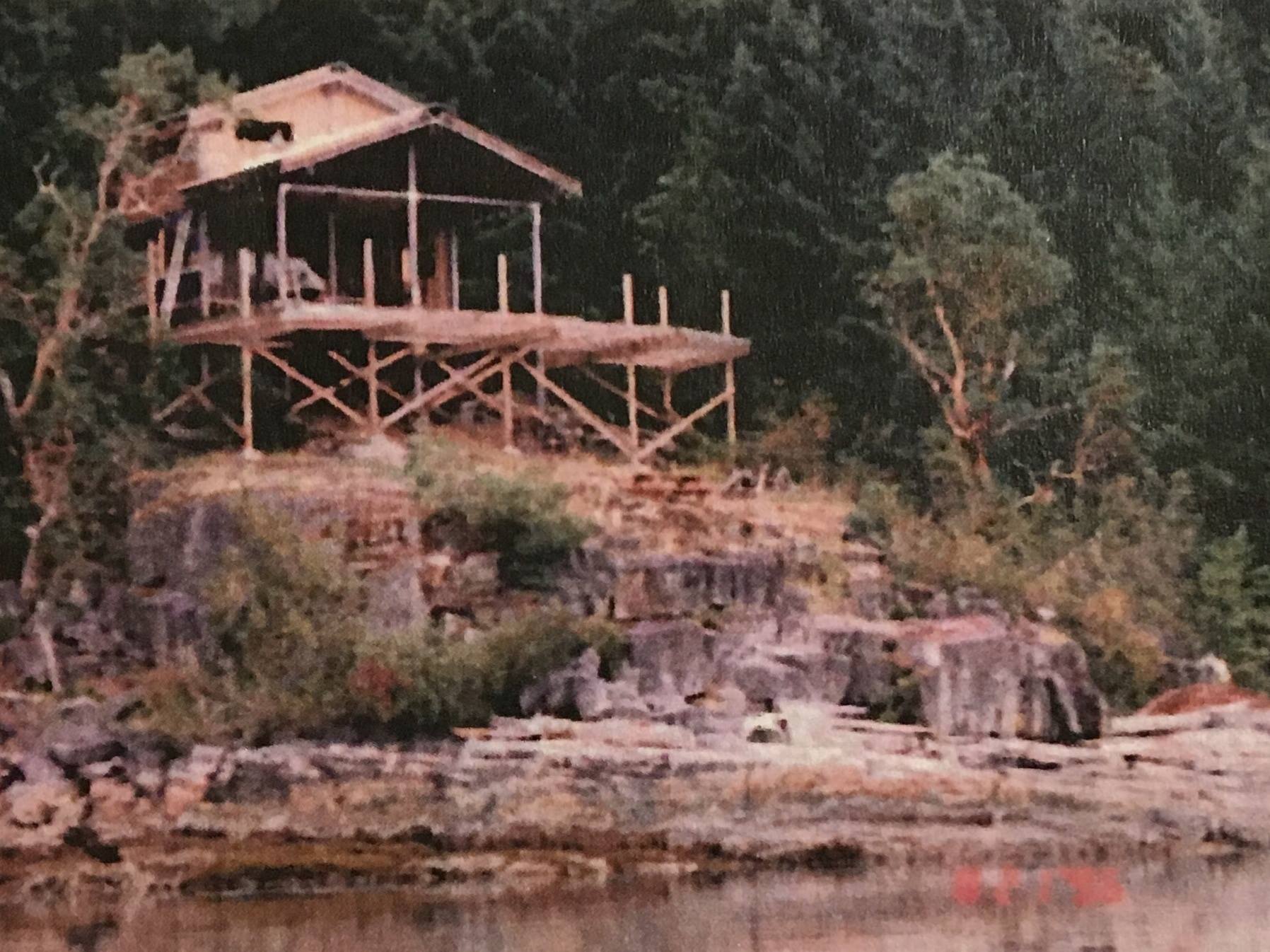
“Desolation Sound was the most awesome place I had ever seen in my life,” Krieger told me.
“The animals and birds and ocean life I saw there every day was unreal, just unreal.”
The larger-than-life Bernard Krieger and his thick black moustache went on to become an infamous character in Desolation Sound through many death-defying adventures.
It was in Desolation Sound where I first met “Bernard the German,” as he was locally known. At first, I didn’t know what to make of his huge presence, menacing glare, and a deep timbre that was by then a curious mix of two accents: German and Canadian hoser.
I was fascinated by the blue-collar giant and soon realized that his bark was worse than his bite. Bernard the German’s unbridled passion for life in the Sound was contagious, and we became unlikely friends.
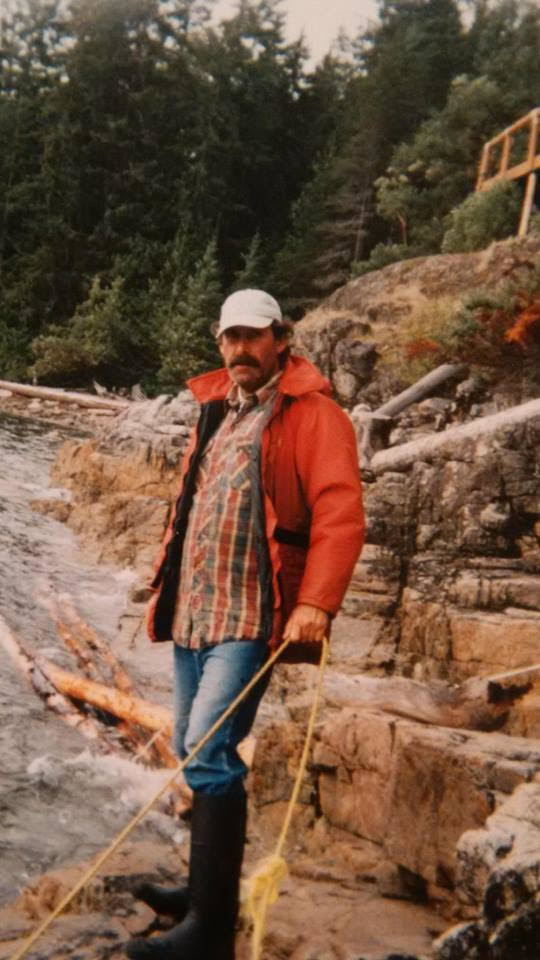
Krieger’s athletic abilities were often on display in Desolation Sound. He and his faithful German Shorthaired Pointer, Dude, swam great distances together in the ocean. They’d cross inlets and bays, many times to the surprise of vacationers on passing sailboats and yachts, who at first took the large German in the black wetsuit to be a surfacing orca or sea lion, and were often shocked to realize it was actually a man and his dog.
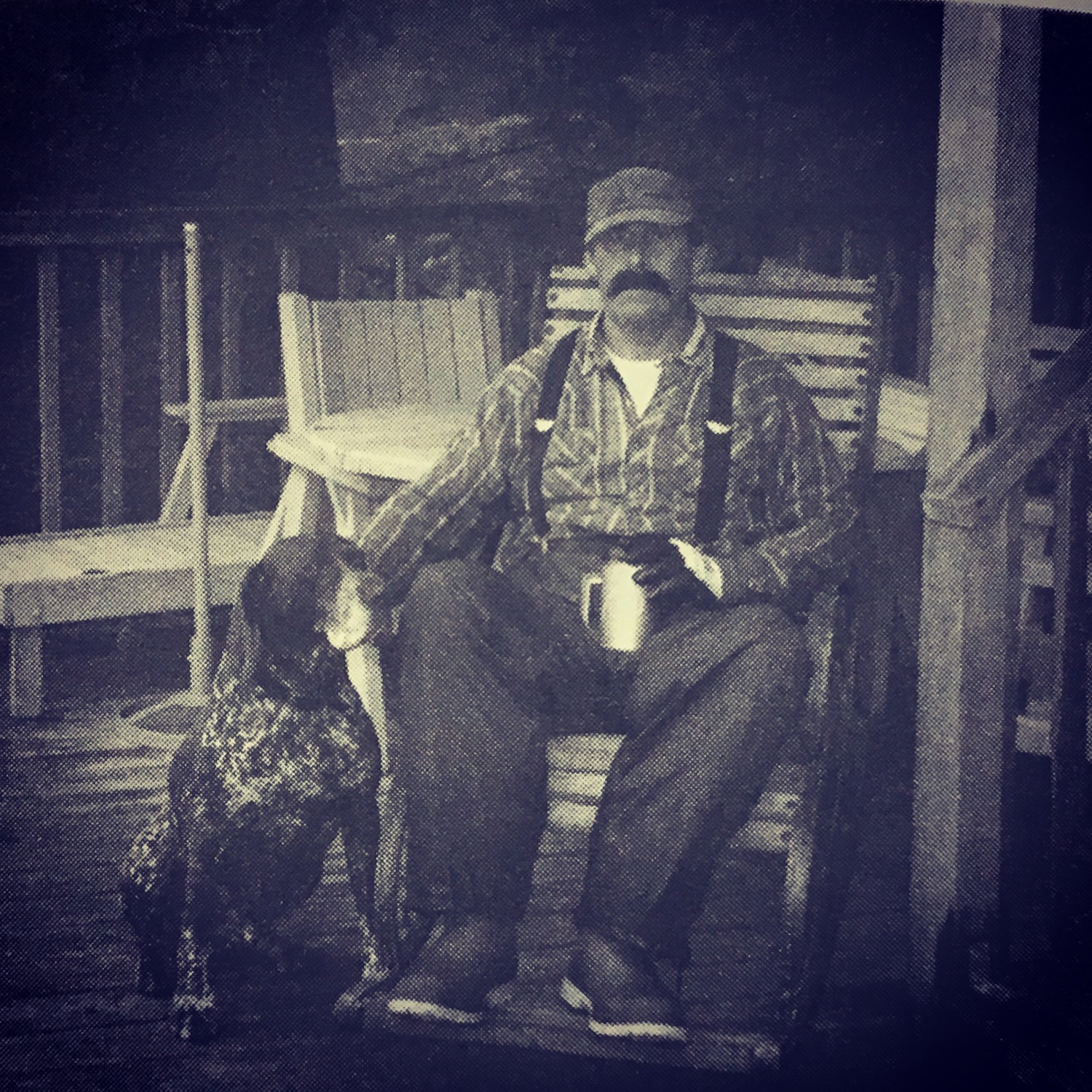
Hepatitis C: second lease on life
In the mid-2000s, Bernard Krieger fell uncharacteristically ill. He was diagnosed with Hepatitis C, which had been lingering in his body since his days of sharing drugs in the late 1960s. He fought the disease with the strongest treatments allowed, which conquered the virus, but at a terrible cost that was still to come.
The Hepatitis C scare was enough for Krieger to realize that his clock was ticking, and he still hadn’t lived out his second dream. Despite protests from his family, Krieger sold his Desolation Sound cabin in 2008 and bought Rainbow’s Shadow, a 13-metre sailboat, sight-unseen, which waited for him in Miami.
“There’s more of the world that I want to see,” Krieger said at the time. “I want to do it on my own boat.”
The only problem was Krieger didn’t know how to sail.
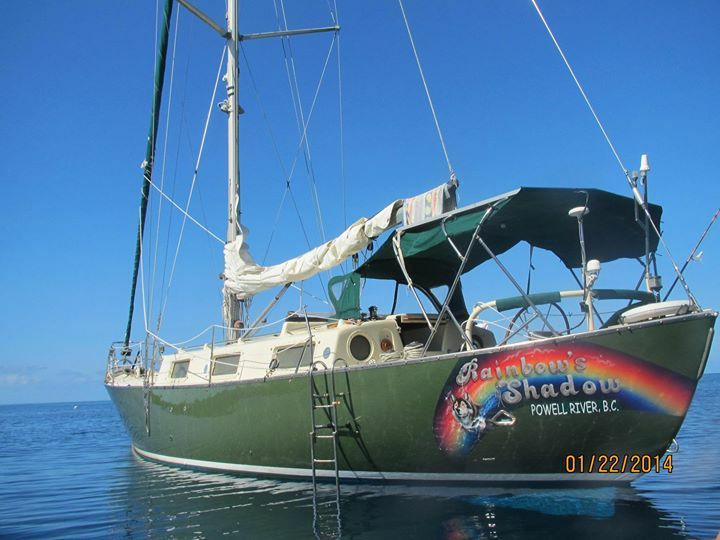
So began the third and final act of the big German’s life. While still suffering from the after-effects of Hepatitis C, which often negatively affected his mood and behaviour, Krieger managed to sail from Florida to Central America with help from friends and family. When those friends and family returned home to Canada, Bernard’s soloing attempts did not go well.
“We ended up in a horrible storm. I thought we were going to die," said Krieger’s daughter Misty Cherry. "We lost anchor and got stranded sideways on a reef for three days.
"It was super intense. That was it for me.”
On his own in Honduras, the sailboat’s motor broke down. But fate dealt Krieger a winning hand when he met Darragh McCarthy, a dreadlocked young Irishman vagabond who was a skipper-for-hire. McCarthy fixed the motor and together they made the passage through the Panama Canal, bound for the open Pacific Ocean and adventures beyond.
Krieger’s wife went home shortly after the crossing of the Canal, and a few years later, the marriage ended. She asked that her name not be included in this story.
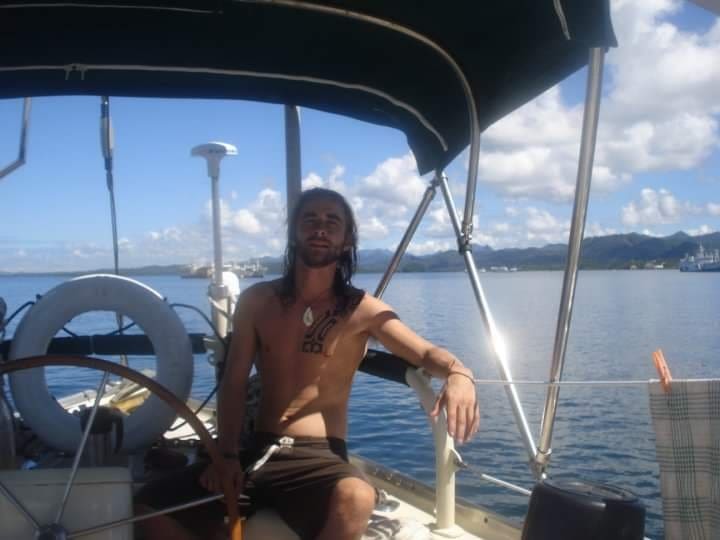
Between cancer treatments
By the time Krieger and McCarthy reached Ecuador in South America, Krieger had fallen ill again: fever, chills, and this time, three large lumps in his neck.
Leaving the Irishman with the boat, Krieger flew back to Canada where he was diagnosed with lymphoma cancer, a known risk from the aggressive treatments he chose years earlier to rid his body of Hepatitis C.
Over the next few years, between cancer treatments in Canada, Krieger would embark undaunted with McCarthy on many farflung sailing adventures. Krieger would often show up for the voyages straight from treatment and still clearly suffering.
“I thought he was nuts to take on major ocean crossings the way he did, so soon after his chemotherapy,” recalled McCarthy. “I told him that he might die on the month-long open ocean crossing from Ecuador to the Marquesas [in the South Pacific], but he told me that he’d die if he didn’t do it.”
.
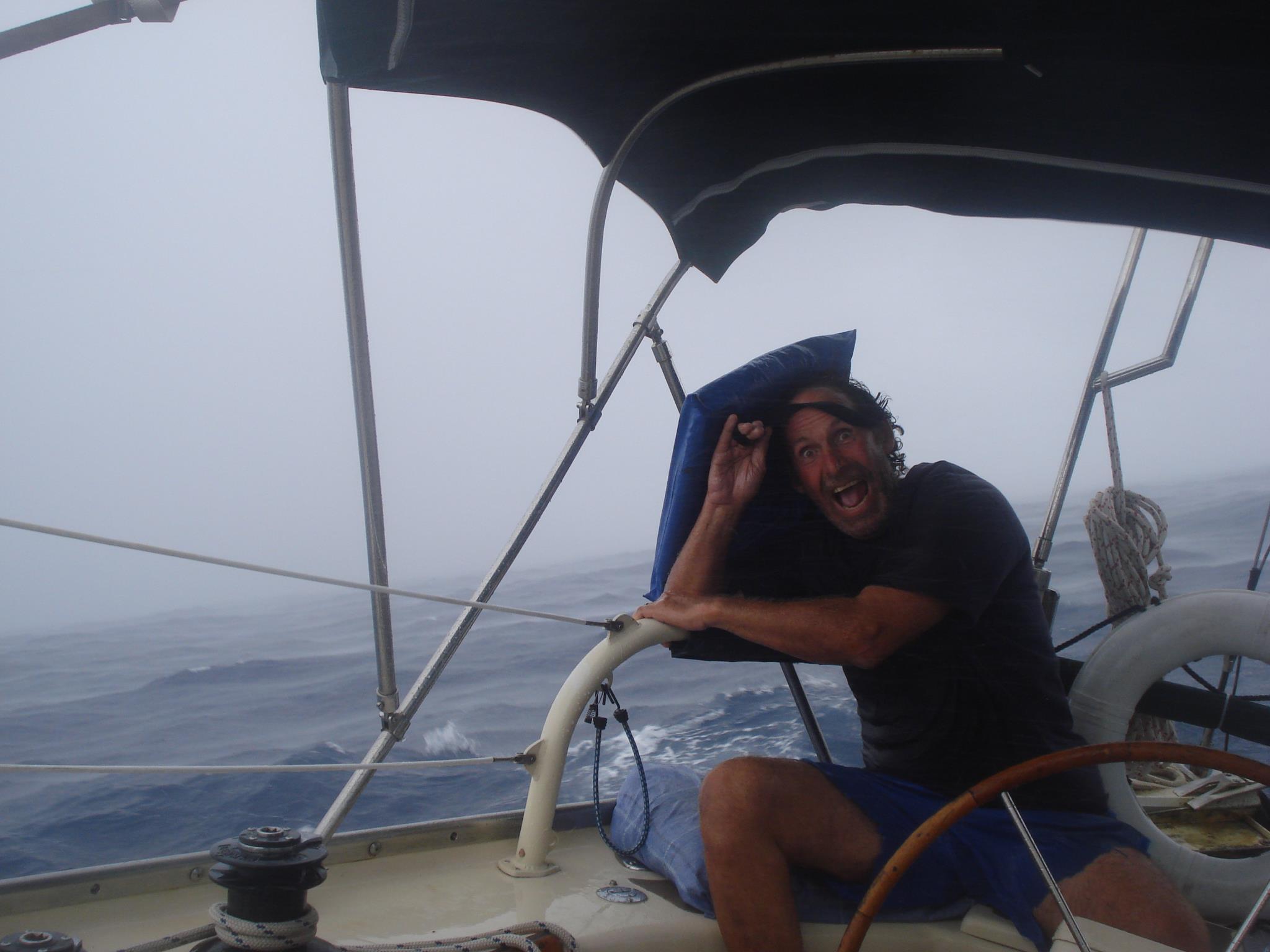
On what would be Krieger and McCarthy’s final voyage together in the spring of 2010, the pair were swept up into a massive storm in the middle of the South Pacific.
The winds became so strong and the waves so huge that there was nothing they could do but batten down the hatches of Rainbow’s Shadow, lie in their births, and “wait to die,” as McCarthy grimly put it. The storm lasted three pounding days, but they survived. All but one of their sails were destroyed in the storm.
They later found out they had survived Cyclone Tomas, a severe Category-4 tropical storm that caused millions of dollars of damage on Fiji. When Rainbow’s Shadow limped into port in Fiji, Krieger had no idea how the island would change his life.
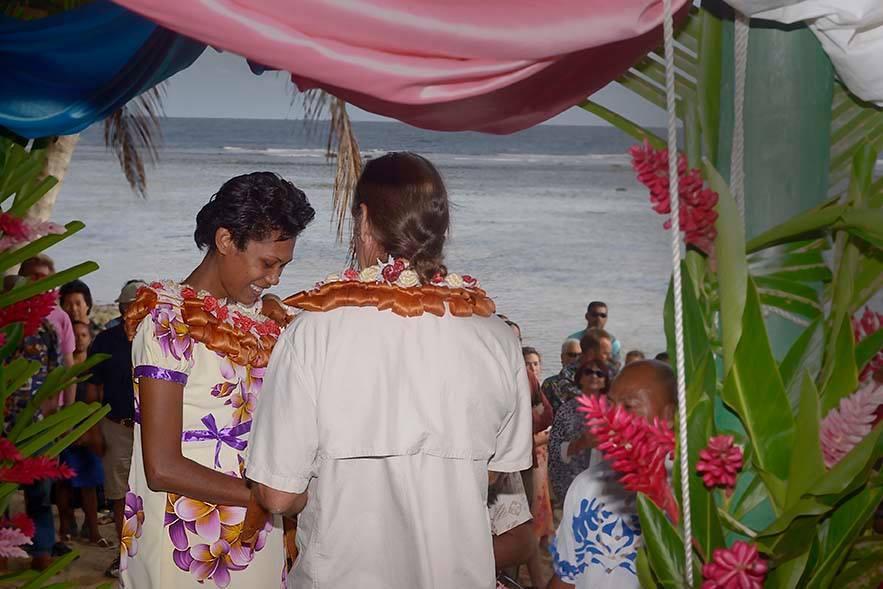
A Fijian life — and death
In the fall of 2010, Krieger was declared cancer-free. The big German felt like he had a new lease on life. In a matter of years, he had beaten Hepatitis C, cancer, and Cyclone Thomas. He loved life on Fiji and decided to plant roots.
At age 64, Bernard shocked his family back home in Canada when he married a Fijian woman, Miliana Waqatabu. At age 65, Krieger shocked himself when he found out he was going to become a father for the third time. Krieger and his wife bought land in the Fijian seaside town of Savusavu, famous for its tidal hot springs. They made plans to build a home.
“He really seemed to find a whole new life in Fiji,” said Krieger’s daughter Misty Cherry. “He was happy and healthy. But I wish he would have called home a lot more often.”
McCarthy, meanwhile, departed. When he saw Krieger settling down, he hopped on another boat and continued sailing. The two never saw each other again.
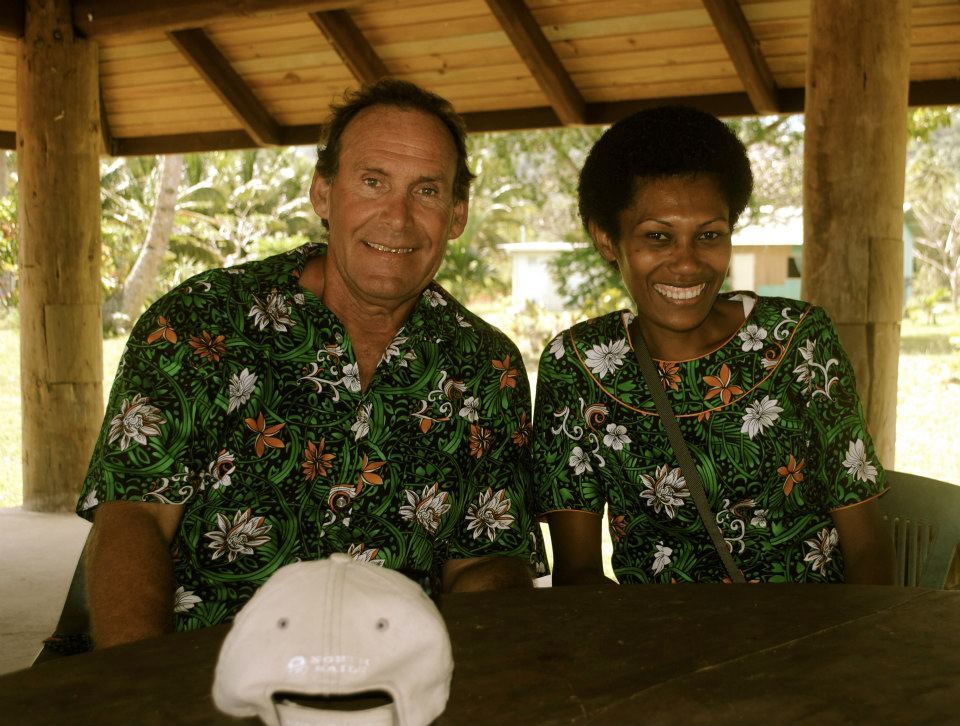
Life on Fiji was wonderful for Krieger, until one final, confusing night when fate dealt Krieger a losing hand. In the early hours of April 12, 2015, after a night on the town, Bernard Krieger was chatting with several Fijians at the top of a grassy shoreline embankment.
In the inky darkness of the tropical night, somehow Krieger misjudged where the edge of the embankment was. He slipped and tumbled roughly three metres to the rocky beach below. Tragically for Krieger, he landed directly into one of Savusavu’s famous shoreline hot springs.
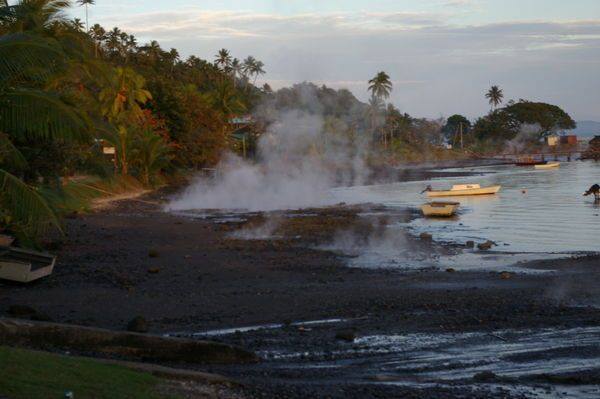
The hot springs of Savusavu are so hot that Fijians have used them to cook their food for generations. The springs maintain an average boiling heat of 100 C (212 F).
Krieger suffered massive third- and fourth-degree burns from his chest down, covering over 65 per cent of his body. He managed to somehow stay alive in hospital for another four days, but succumbed on April 16, 2015, at age 66.
His son, Lorenzo Waqatabu Krieger, was four months old at the time of Krieger’s death.
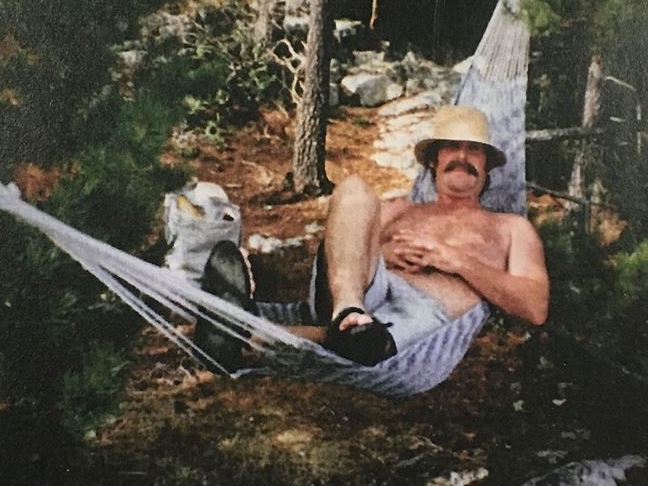
Krieger is survived by his wife, three children, three grandchildren, 10 siblings, many nieces and nephews, and the countless friends he made around the world.
“I will always love this beautiful bear as a person who made life so much better," said Peter Stevenson, an Australian sailor who became Krieger’s best friend on Fiji. "I miss him every day.
“[Krieger] was a man’s man, a guy that brings into our often sorry world a belief that there are better times ahead.”
Many fondly remember the big German for the amount of life he managed to pack into his 66 years. No matter what the odds, Krieger lived his dreams, and those dreams carried him to the end of the earth, and to the end of his life.
Bernard the German is a 10-chapter radio serial podcast written, produced, and narrated by the CBC’s Grant Lawrence. The series originally aired in the fall and winter of 2018 on North By Northwest on CBC Radio 1.
The story is based on interviews and correspondence with Bernard Krieger, as well as interviews with Krieger’s family, friends, lawyer, a medical professional, and various sailing experts.
